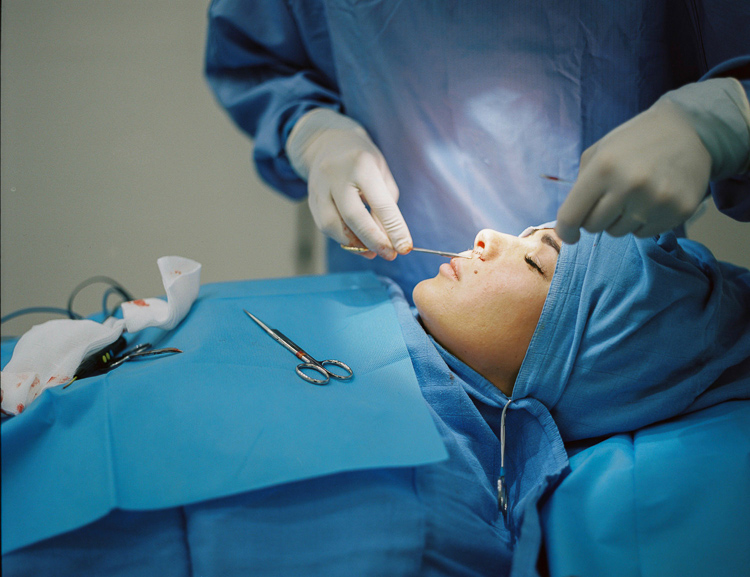Striving for environmental change has become a passionate and popular subject in todays economy as more and more shocking images of the consequences of our daily lives are revealed as it takes it toll on our planet. Joining in on this protest is analog photographer and visual activist, Mary Moran. Born in Buffalo, NY, she lived and worked in Washington, DC and Beirut, Lebanon before moving to London in 2018. While in Beirut, she worked as the UK Foreign & Commonwealth Office’s communications lead on Syria and spent the better part of a decade working in international public diplomacy and communications, but ultimately decided to pursue visual arts as a means of political activism. In 2018, Morgan transitioned into being an artist full-time, believing that art elicits a visceral and intellectual reaction, and has the ability to influence a movement by giving it a voice.

 A project inspired and driven by her experiences is small publication titled PLASTIC, a piece of print that juxtaposes the two definitions of the word which are fundamental, but ironically opposing, cornerstones to modern Lebanese society. Morgan’s research and observations identified Lebanon as a major plastic surgery hub with an undisputed obsession with physical perfection. More than 1.5 million cosmetic procedures are performed each year in the small country and Lebanon’s First National Bank even offers loans of up to $5,000 for cosmetic surgery, showing how ingrained into society this desire to be perfect really is.
A project inspired and driven by her experiences is small publication titled PLASTIC, a piece of print that juxtaposes the two definitions of the word which are fundamental, but ironically opposing, cornerstones to modern Lebanese society. Morgan’s research and observations identified Lebanon as a major plastic surgery hub with an undisputed obsession with physical perfection. More than 1.5 million cosmetic procedures are performed each year in the small country and Lebanon’s First National Bank even offers loans of up to $5,000 for cosmetic surgery, showing how ingrained into society this desire to be perfect really is.


 While the Lebanese society prides itself on its plastic glitz, it ironically has a massive plastic crisis. Lebanese stream to plastic surgeons to spend thousands of dollars in order to look ‘perfect,’ but their country meanwhile sits in a covered wasteland of plastic. For years, the country has struggled with a garbage crisis. Beirut and its suburbs alone generate more than 3,000 tons of trash per day, according to government figures. While some efforts have been made to try and establish recycling, it is a new trend that has not yet taken root. Naturally, this is having a disastrous impact on Lebanon. Bacteria levels in the water have been measured at more than 100 times the amount that would prompt the closure of a public beach in New York.
While the Lebanese society prides itself on its plastic glitz, it ironically has a massive plastic crisis. Lebanese stream to plastic surgeons to spend thousands of dollars in order to look ‘perfect,’ but their country meanwhile sits in a covered wasteland of plastic. For years, the country has struggled with a garbage crisis. Beirut and its suburbs alone generate more than 3,000 tons of trash per day, according to government figures. While some efforts have been made to try and establish recycling, it is a new trend that has not yet taken root. Naturally, this is having a disastrous impact on Lebanon. Bacteria levels in the water have been measured at more than 100 times the amount that would prompt the closure of a public beach in New York.
 Morgan’s publication showcases a series of hard-hitting photographs creating a beautiful juxtaposition between two hard hitting social issues. The soft colours and tones of the plastic blend into it’s surroundings almost like an eery camouflage, becoming more and more invisible to those who past it. The more creative protests we have, the faster we can make changes to improve our planet, as Morgan successful shows.
Morgan’s publication showcases a series of hard-hitting photographs creating a beautiful juxtaposition between two hard hitting social issues. The soft colours and tones of the plastic blend into it’s surroundings almost like an eery camouflage, becoming more and more invisible to those who past it. The more creative protests we have, the faster we can make changes to improve our planet, as Morgan successful shows.










No comments:
Post a Comment